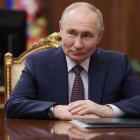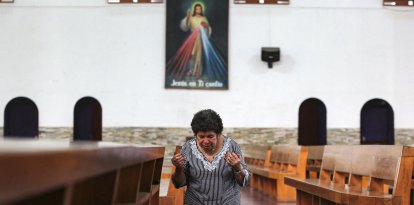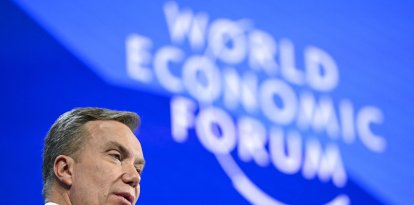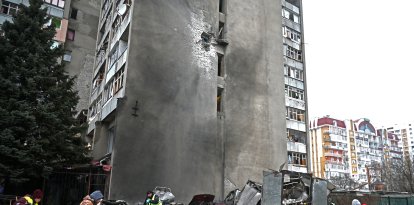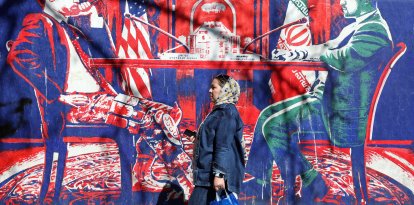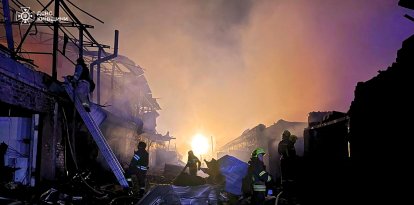Russia in Syria: a power game on an uncertain chessboard
After the fall of Bashar al-Assad, Moscow is striving to maintain its influence in the Middle East amid the rise of a new Islamist government hostile to the former Syrian president — a longtime ally of Vladimir Putin — and increasing pressure from regional powers.

Russian President Vladimir Putin
The relationship between Russia and Syria has long been a cornerstone of Moscow’s foreign policy. Dating back to Soviet times, Damascus has been a strategic ally in the Middle East. That alliance was solidified in 2015 when Russian President Vladimir Putin intervened militarily to rescue Bashar al-Assad’s regime from the brink of collapse after four years of civil war.
However, the fall of Assad in December 2024, following a lightning offensive led by the radical Islamist group Hayat Tahrir al-Sham (HTS), headed by Syria's de facto and interim president Ahmed al-Sharaa, changed the rules of the game.
Russia now faces a critical challenge: preserving its influence in a country where its longtime ally is no longer in power.
Strategic bases at stake
Russia’s most concrete strategic stake in Syria lies in its military installations: the naval base in Tartus—its only direct access to the Mediterranean—and the Hmeimim air base in Latakia. These facilities not only provide naval and aerial reach but also underpin Russia’s posture as a global power. According to recent reports circulating on social media, Russian troops have redeployed from these bases for the first time since Assad’s fall, taking up positions near Hmeimim. The move signals Moscow’s determination to hold its ground, even as the transitional government publicly demands a full withdrawal of Russian forces.
In January 2025, the new Syrian government also canceled a contract with a Russian company that had managed the port of Tartus since 2019, signaling a further decline in relations with Moscow.
A counterweight to the West
Beyond its military interests, Syria has served as a strategic platform for Russia to counter Western dominance. Throughout the civil war, Moscow consistently vetoed UN resolutions targeting Assad and positioned itself as a key regional powerbroker, engaging in diplomatic negotiations with Turkey and Iran through the Astana peace process, launched in Kazakhstan in January 2017—six years into the Syrian conflict.
Now, with HTS in power—a group deemed a terrorist organization by both Russia and the U.S.—Putin faces a delicate challenge: preserving his military bases without directly clashing with the new Syrian leadership, who, according to spokesman Obeida Arnaout, view the Russian presence as a remnant of Assad's "criminal regime."
Economic and regional interests
Economically, Syria has served as a market for Russian arms and a potential hub for energy investments. Before 2011, Damascus spent millions on Russian fighter jets and missiles, while Russian companies like Gazprom explored Syria's gas reserves. However, the country's devastation and ongoing political uncertainty have significantly limited these opportunities.
Regionally, Russia's presence also raises concerns for Israel, which fears that advanced weapons could end up in the hands of radical HTS Islamists. Additionally, Turkey, which supports the Sahara-led group, is wary of Moscow due to their rivalry in other areas.
Success or decline?
Despite its efforts, Russia's influence in Syria seems to be waning. The loss of Assad, its long-time ally, combined with pressure from the new government, casts doubt on the sustainability of its presence. As Putin deals with the ongoing war in Ukraine and Western sanctions, Syria may become a costly burden. However, abandoning the country would mean relinquishing a key symbol of its global power, a concession the Kremlin is unlikely to make easily.
On this uncertain chessboard, Russia is playing its cards cautiously. Negotiating with HTS, reinforcing its military bases, and maintaining dialogue with powers like Turkey will be crucial to preserving its influence in the Middle East. However, amidst such a dynamic shift, the future of Russia's presence in Syria remains uncertain.
Russia is trying to get closer to the Syrian leader
In this complex context, Vladimir Putin recently sent a letter to Ahmed Al-Sharaa - also known by his nom de guerre Abu Muhamad al-Golani- in which he expressed support for efforts to preserve Syria's territorial integrity and offered Moscow's "practical cooperation," as reported by Russian government spokesman Dmitry Peskov, according to Reuters.
As Peskov noted in remarks to journalists, Putin conveyed the message to Al-Sharaa through an envoy.
In the letter, Putin also reiterated Russia's commitment to "develop practical cooperation with the Syrian leadership across the entire spectrum of bilateral issues to further strengthen the traditionally friendly Russian-Syrian relations," Peskov said.
The message was sent amid escalating tensions in Syria, following accusations that members of Hayat Tahrir al-Sham (HTS) were responsible for a series of tortures and murders targeting various minority groups, including Christians and Alawites, the Shiite Muslim sect to which former President Bashar al-Assad belongs. Assad, whose regime was a close ally of Russia and Turkey, is currently in exile in Moscow.






